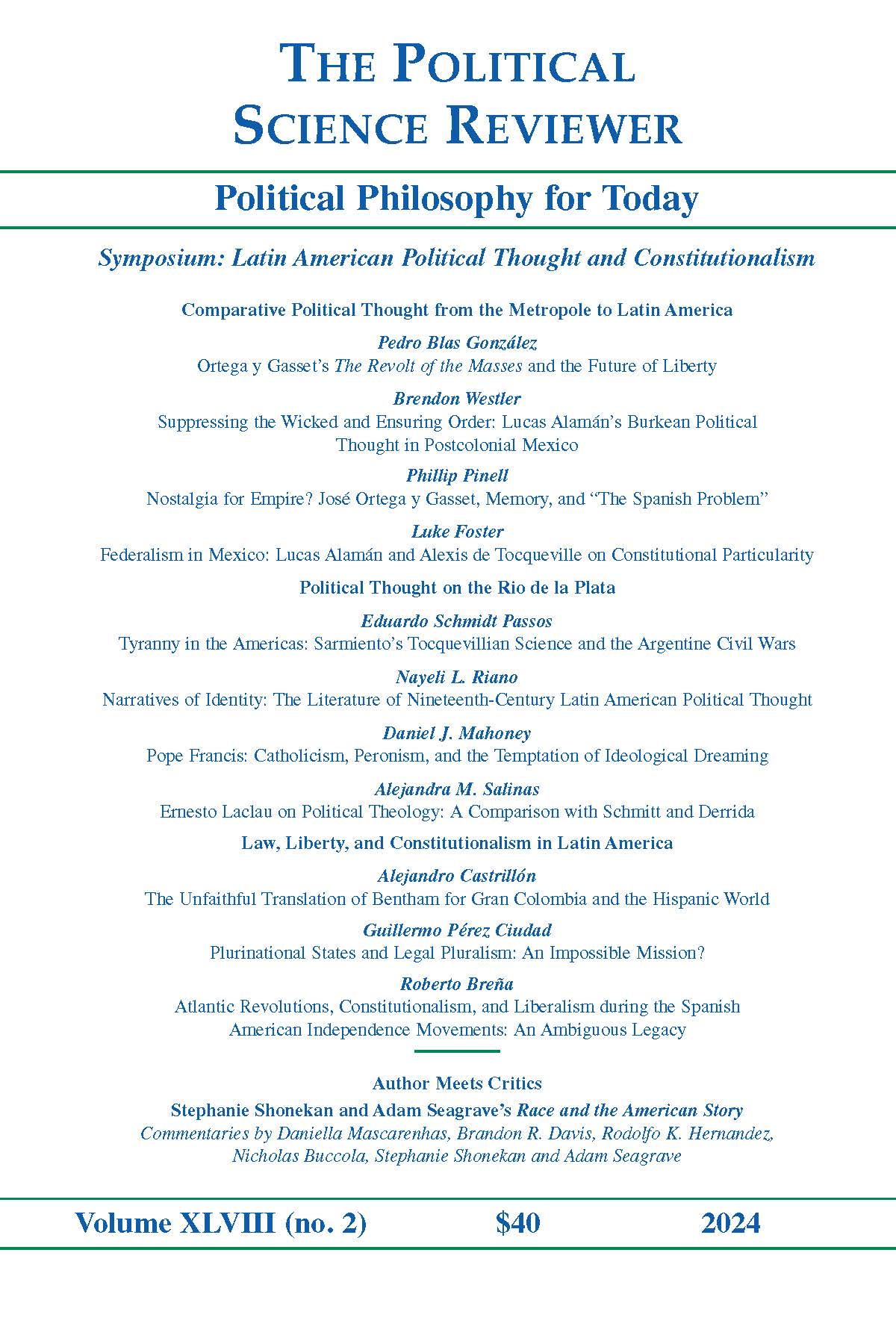Abstract
José Ortega y Gasset’s seminal 1930 book, The Revolt of the Masses, has a misleading title. The word ‘revolt’ in the title gives the unsuspecting reader the impression that the book is a work of political science. Readers who approach this now classic work in that vein are quickly disappointed, some even confused. The Revolt of the Masses is a work of philosophical anthropology that explores the nature of free will, authenticity, self-reflection and liberty in relation to man’s understanding of society, the world and objective reality. Ortega y Gasset addresses these philosophical themes through metaphysical/existential reflection in the life of mass and noble man respectively, and what these two modes of being signify for human freedom in modernity and future eras. One of the achievements of The Revolt of the Masses is Ortega’s exploration of the effect that metaphysical/existential turning away from authenticity and free will has on modern life, and the threat that existential negation and ennui are to the future of liberty. “Ortega y Gasset’s The Revolt of the Masses and the Future of Liberty” makes the case that Ortega’s thought, regarding mass man and liberty, should be given ample space to make the case for himself, through a careful reading and generous citations.
